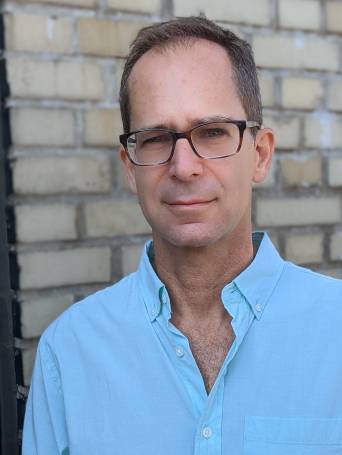Salo Vinocur Coslovsky
Associate Professor of Urban Planning and Public Service
Room 343
New York, NY 10003

Salo Coslovsky is Associate Professor of Urban Planning and Public Service at NYU Wagner. His research analyzes how government agencies can protect workers, the environment and consumers while enhancing private firms' ability to compete.
Coslovsky began his career by examining the enforcement of labor laws and food safety standards and publishing much of this work in academic journals. Expanding upon this foundation, since 2020 he has focused on studying climate policy and ways to foster forest-friendly enterprises in the Brazilian Amazon. To make this research more accessible to those who are shaping the future of this vital region, Coslovsky has been publishing the bulk of this work in Portuguese. In addition to a number of technical reports, he has been writing op-eds for mainstream Brazilian media, including a monthly column published by O Estado de São Paulo, a leading Brazilian newspaper.
Nature-based solutions to climate change are of increasing global signficance and his work has attracted significant attention from both Brazilian and international press. It has also gained enough traction in policy circles that core elements of his research have been incorporated into federal and state-level government initiatives in Brazil. Through his direct involvement in policy implementation with agencies including ApexBrasil and the Secretary of Environment for the State of Pará, Coslovsky is gaining first-hand insights into the challenges and opportunities of green growth. His research has been funded by Instituto Clima e Sociedade, Instituto Arapyau, Fundação Itausa, Kawa Capital, Banco Bradesco, Banco Santander, and Banco Itaú Unibanco.
In line with his focus on sustainable development, Coslovsky is keenly interested in how government bureaucracies implement policies. Too often, researchers propose solutions without considering the administrative and political constraints that elected leaders and public servants face, then criticize these agents for failing to deliver the expected results. In contrast, Coslovsky strives to understand what government agencies can achieve considering their latent capabilities and enduring constraints, and how we can design policies that produce the best possible outcomes.
Over the years, Coslovsky has advised Brazilian and multilateral organizations, including the Ministry of Environment, IBAMA, the International Labor Organization, and the Inter-American Development Bank on matters of policy design and implementation. He is a core member of Projeto Amazônia 2030 and serves as chairman of the board at IMAZON, a leading think tank based in Belém and is also a board member of Conexsus-USA.
Coslovsky holds a Ph.D. in Urban Studies and Planning from MIT, an M.A. in Law and Diplomacy from the Fletcher School at Tufts University, and a Bachelor's in Public Administration from the Getúlio Vargas Foundation in São Paulo, Brazil.